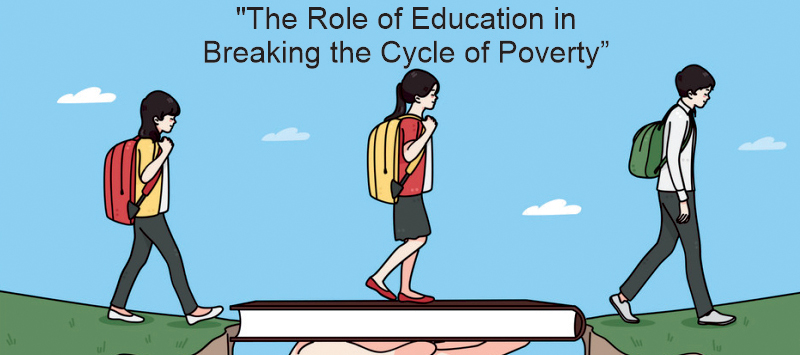
Quality Education: The Key to Breaking Cycles of Poverty and Inequality
Krishna Ladhani, 23COMG08, B.Com, Kristu Jayanti College, Autonomous
Education is often hailed as a powerful equalizer capable of breaking poverty, ignorance, and inequality cycles. It empowers individuals, dismantles stereotypes, and promotes social cohesion. For women facing marginalization, communities subjected to discrimination, or individuals from disadvantaged backgrounds, access to quality education can be transformative.
When talking about "quality education," we're referring to a more holistic approach that equips learners with the knowledge, skills, values, and critical thinking needed to navigate today's fast-paced world. Quality education is more than just access to schools or academic achievement; it's about creating practical, inclusive, and relevant learning experiences that prepare students to thrive in a modern, interconnected society.
Key Dimensions of Quality Education
1. Curriculum Relevance
A quality curriculum balances foundational skills, critical thinking, and real-world applications, addressing local needs and global challenges.
2. Skilled Educators
Competent, well-trained educators who bring patience, experience, and dedication are vital to shaping young minds and fostering a love for learning.
3. Student-Centered Learning
Emphasizing interactive, inclusive teaching methods caters to diverse learning styles and creates an engaging, supportive environment for all students.
Why Quality Education Matters
1. Economic Growth
Education produces a skilled workforce that can contribute to a nation's economic prosperity and enable individuals to improve their financial well-being.
2. Empowerment and Social Mobility
Education builds confidence, provides a sense of identity, and enables individuals to actively participate in society actively, promoting upward mobility and greater social cohesion.
3. Sustainable Development
Quality education prepares young people to address pressing global challenges like climate change, inequality, and discrimination, equipping them to create a sustainable future.
The Path Forward: Overcoming Barriers to Quality Education
Despite its importance, achieving quality education remains challenging due to poverty, inadequate infrastructure, and social barriers. Addressing these obstacles requires collective action—from government policy to community engagement and individual contributions. Together, we can create a future where quality education is accessible to all, enabling learners to reach their full potential and contribute to a more just, equitable, and sustainable world.